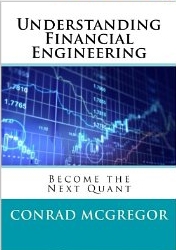You might have heard about Congress’ major work this summer in protecting the consumer against unfair credit card terms. It was called “H.R. 627 – The Credit Card Act of 2009”. From what I can tell, the only thing this act does is require more disclosures. Has anyone really read the 30 page documents that come for each of your credit cards every 4 months as the terms change? I haven’t. The only protection I see is that they supposedly prohibit over-limit charges unless the consumers “opt-in“. But I think we all know that the bank will take it as an “opt-in” if you do not reply that you “opt-out”.
I opened a Wells-Fargo checking account about a year ago because I received a “Get $50 if you open up a free checking account with Wells Fargo!”. Seemed like some free money and it was a convenient location for me so I stopped in, opened up an account with a personal banker, got the usual sales pitch on everything from brokerage accounts to mortgages. I simply wanted the checking account and was told that everything was kosher.
It turns out that on the 12th of every month I was charged a $15 fee. The first time I went in and talked to the personal banker, she said, “I have no idea why it would be charging you a fee, you have met all criteria for the account, but we could set up a savings account with a direct deposit to see if that makes it go away…” I said that I had no interest in a savings account that paid .12% interest. The second month I called in, got a different response – told me that it was because it was linked up to a business account so it was triggering the payment and assured me that everything would be fixed for the following month. The third month the same thing happened and I was provided zero help from someone who probably has difficulty figuring out how to make coffee in the morning. The fourth month I lost it. I was on the phone with 4 different people and hung up on once. Finally I sat down, read through all of the documents and decided that I would simply convert this from a “Premium” checking to a “Free” Checking account.
That solved the recurring monthly fee problem but introduced another. Yesterday I withdrew $60 from my “Free checking” account from an ATM machine that did not charge anything for its use. Today I found that Wells Fargo charged me $2.50 for withdrawing money on a non-wells fargo ATM machine as well as $1.50 for checking my balance on that same machine. Four dollars on a $60 withdrawal or about 6.7% for withdrawing cash from a machine that itself charged no fee. It’s as if I was withdrawing money at Scores.
Another example was happily provided by American Express. I had been a never late/full balance paying customer for over 5 years when I made the epic mistake of paying a $27 balance 1 day late. The vultures came out with a ravenous appetite. The customer service rep made me feel like I owed my first born for having her lift the $35 late fee, but at least I thought the problem was over. The following month I had a massive interest charge on my bill. I thought it must be a mistake. It turns out that on this particular credit card, and probably most American Express cards, if you make a late payment once then you are charged interest on the average carrying balance for the next two months after you made your late payment. In this case, the $27 was just the start of me beginning to heavily use the American Express card as I made it my primary credit card. This meant, that because I was 1 day late on a $27 balance I was told to pay a high interest rate for two months on about $2500 in average balances. When I (twice) asked the customer service rep to tell me how this could be possibly be considered fair she replied (twice) “this is what is stated in your credit card terms”. I even put it in terms of the bank, “so basically you are punishing me for using the credit card after I have made a late payment. In fact if I did not use this card for two months after making the late payment (thereby not having an average balance that they could charge interest on), then there would be little to no interest paid as a penalty”. Response: “That is correct sir.”
These are two small and petty examples of how absolutely ridiculous the banks are with their insidious fees, but it only brings to light how terribly embezzled the average American consumer is. The average American household carries $8,000 in credit card debt. With an unemployment rate of 10% and bills stacking up, how many unfair penalties are being paid to the banks? Not only do they need to borrow from the government (taxpayer) at zero percent and lend out to the consumer (taxpayer) at 6-20%, but they need to tack on fees that would make the average bookie flinch.
Congress’ solution: create an empty shell of a document called “The Credit Card Act of 2009” and tell the public that you are standing up for the little guy.



